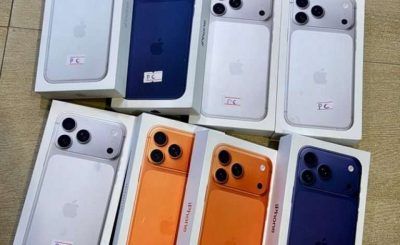Views: 30
Understanding Nigerian Consumer Behavior In Online Shopping

Meta description: Learn how to succeed in Nigeria’s e-commerce market by understanding consumer behavior. Discover key strategies to boost sales online and gain customer loyalty. The study of how people (individuals or groups) choose, purchase, use, and discard products, services, and concepts is known as consumer behavior. It is a multidisciplinary field that uses sociology, psychology, and other social sciences to comprehend the factors and motivations influencing consumer choices.
Online shopping in Nigeria has grown quickly in the last decade. Thanks to better internet access and more people using smartphones, buying products online is now part of everyday life. E-commerce platforms make shopping easier and offer a wide range of options, which many Nigerians now prefer.
If you’re a business looking to succeed in Nigeria’s online market, it’s important to understand how Nigerian online shoppers think and act. In this post, we explore the key consumer behaviors that shape online shopping in Nigeria and how you can use this knowledge to grow your business.
Understanding consumer behavior helps businesses:
Develop effective marketing strategies.
Enhance innovation and product development.
Anticipate the desires and requirements of your customers.
Choose the most suitable communication channel.
What is the consumer behavior in Nigeria?
Shopping habits in Nigeria are changing fast. If your business wants to grow in this space, it’s important to understand what drives Nigerian consumers. Culture, income levels, and technology all affect how people choose what to buy.
Recent research shows that more Nigerians shop using their mobile phones. This highlights the need for strong digital marketing strategies. Businesses should pay close attention to shopping patterns, what people buy, how much they’re willing to pay, and how loyal they are to certain brands.
For example, young Nigerians aged 18 to 35 are highly influenced by social media. Working with influencers can be a smart move to reach this audience.
It’s also helpful to understand what motivates buyers. While low prices matter to shoppers, more people are also starting to care about product quality and brand reputation. By grouping your audience and learning what each group wants, you can create more powerful and personal marketing messages that drive results.
Key Factors Influencing Nigerian Consumer Behavior In Online Shopping
- Online Payment Systems in Nigeria
In Nigeria, how people pay for things online is changing fast, and that change is helping e-commerce grow. With more than half of the population in Nigeria using the internet every day, there’s a big need for fast, safe, and easy ways to make payments.
Today, Nigeria’s payment system is a mix of old and new. Traditional banks still play a role, but new financial technology (fintech) companies are changing how payments are made. The Central Bank of Nigeria (CBN) has created rules to support this shift, like the cashless policy, which pushes people to use less physical cash.
Payment platforms like PayPal and Flutterwave have made it easier for Nigerian businesses to sell to both local and international customers. These tools not only make payments smoother but also help build trust, which is very important when shopping online.
Still, there are challenges. Many Nigerians worry about online fraud and whether their money is safe. This shows that while payment systems are improving, there’s still work to be done to make people feel fully safe.
- Cultural factor
Nigeria is a country full of culture and diversity. With many ethnic groups like the Yoruba, Igbo, and Hausa, it’s no surprise that culture plays a big role in how people shop and what they buy. From food to clothing, traditions and values shape people’s preferences in many ways.
Cultural events like weddings, festivals, and other special occasions often influence what people choose to buy. Many Nigerians prefer brands that match their cultural identity. About 70% of Nigerian consumers are more likely to choose a brand that reflects their culture instead of a global one. This shows that local connections matter more than international popularity for many shoppers.
Family also plays an important part in shopping decisions. In Nigerian homes, especially in traditional settings, big purchases are often discussed and agreed upon by the whole family. This is why bulk buying is common, especially for food and household goods.
For any business that wants to succeed in Nigeria, it’s important to understand and respect these cultural influences. When marketing strategies reflect local values, people are more likely to stay loyal and view the brand in a positive light.
- E-Commerce Growth
Shopping on phones is becoming more popular in Nigeria, and it’s changing the way people buy things online. With more people using smartphones, mobile commerce is growing fast. In fact, over 70% of internet users in Nigeria now shop online using their mobile devices. Experts believe that in the future, nearly half of all online shopping in Nigeria will happen through phones.
One big reason for this growth is convenience. Mobile apps make it easy for people to browse products, compare prices, and make purchases with just a few taps. Mobile wallets are also becoming more common. The majority of people in Nigeria now use them to pay without cash, making shopping faster and easier.
This trend is not just helping people in cities—it’s also opening up more shopping options for those in rural areas, where there might not be many stores. Young people, especially, are leading the way. They are more likely to shop online and use mobile payment tools than older generations.
For businesses, this is a great time to focus on mobile. By offering easy-to-use apps, personalized deals, and loyalty rewards, brands can connect better with their customers and build stronger relationships.
- Consumer Behavioral Factors
To succeed in Nigeria’s e-commerce market, businesses need to understand how Nigerian consumers shop. The way people buy things in Nigeria is shaped by factors like income, age, and access to technology. With more people using mobile phones and mobile payment systems, online shopping habits have changed a lot in recent years.
More than 70% of Nigerians prefer shopping on their mobile phones. This means businesses need to make sure their websites and apps are mobile-friendly. Convenience is a top priority for shoppers, and an easy navigation and a quick checkout make a big difference in their buying decisions.
Price is also a big factor. Nigerian consumers compare prices on different websites before they buy anything. This means businesses must offer competitive prices and extra services to stand out.
Trust is another key factor. Many Nigerians are concerned about whether products are authentic and if they’ll receive their orders on time. About 64% of people said this was a big concern for them. So, having clear return policies and positive customer reviews is important for gaining trust.
- Technological Factors
In Nigeria, technology is changing how people shop, and it’s reshaping the way businesses connect with customers. Smartphones and internet access have made shopping more convenient, with many Nigerians now using their mobile phones to buy things online. This shift towards online shopping isn’t just a passing trend; it’s a new way of doing business.
Social media has also become a big influence on what people buy. Nigerian shoppers are influenced by social media when making purchasing decisions. This means businesses need to focus on digital marketing that connects with local preferences and habits.
Technology is also improving the shopping experience by offering more personalized service. With the help of data, businesses can now offer products and ads that are helpful to each customer’s needs and interests.
- Logistics and Supply Chain Factor
For e-commerce businesses in Nigeria, having a strong logistics and supply chain system is key to success. How quickly and reliably products are delivered can make or break customer satisfaction. A lot of Nigerian consumers care most about delivery speed and reliability. This means businesses need to focus on improving their logistics to meet customer expectations.
Nigeria faces some unique challenges when it comes to logistics. While cities like Lagos and Abuja have better infrastructure, rural areas often don’t have easy access to roads or delivery services. This makes delivery times longer and more expensive in certain areas. To deal with these challenges, online retailers need flexible logistics strategies that can adjust to different parts of the country.
Using data can help improve delivery routes and manage inventory more efficiently. New technologies also keep customers updated on their orders, which helps build trust. Partnering with local delivery services can also improve last-mile delivery, making sure products reach even the most remote areas.
- Demographic Factors
When it comes to shopping in Nigeria, demographics play a big part in shaping how people buy things. Factors like age, gender, income, and education level all influence purchasing decisions. Let’s take a closer look at how these factors shape consumer behavior.
Higher-income households tend to spend more on premium brands and luxury items, while those with lower to middle incomes are more focused on finding affordable options. This creates different market segments, which brands need to understand to target the right audience.
Younger consumers are more likely to shop online and use digital payment methods.
And the Gen-Z group prefers e-commerce platforms, signaling a big change from traditional shopping.
Education level is important too. Consumers with higher levels of education usually do more research before making purchases and prefer brands that are transparent and sustainable.
Gender is another factor that influences shopping habits. Women are often more loyal to beauty and fashion brands, while men may be more interested in technology and automotive products. Understanding these differences helps brands create more effective marketing strategies.
- Impact of Social Media
Social media is playing a huge role in changing the way people shop in Nigeria. Platforms like Facebook, TikTok, WhatsApp, Instagram, and X (formerly Twitter) have become important tools for businesses to connect with customers and influence their buying decisions. Social media is no longer just for marketing; it’s also becoming a major sales channel.
The majority of Nigerian internet users now use social media to discover products. This shows just how important these platforms are for increasing brand visibility. By using targeted ads and engaging content, businesses can reach specific groups of people, making sure their products appeal to the right audience. This is especially important in Nigeria’s diverse market, where understanding local cultures matters a lot.
Social media is also creating a more community-driven shopping experience. Many consumers now trust user reviews and influencer recommendations when making buying decisions.
Conclusion
To succeed in Nigeria’s e-commerce market, businesses need to understand how Nigerian consumers shop. Focusing on trust, security, mobile-friendly websites, different payment options, social media influence, and personalized shopping experiences can help businesses meet the needs of Nigerian shoppers.
As the e-commerce market continues to grow and change, staying in tune with what consumers want will be essential for long-term success.
By kingkentus








You must be logged in to post a comment.